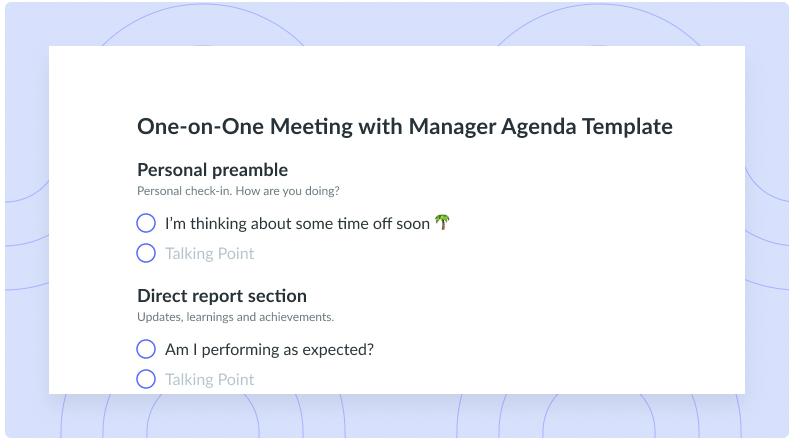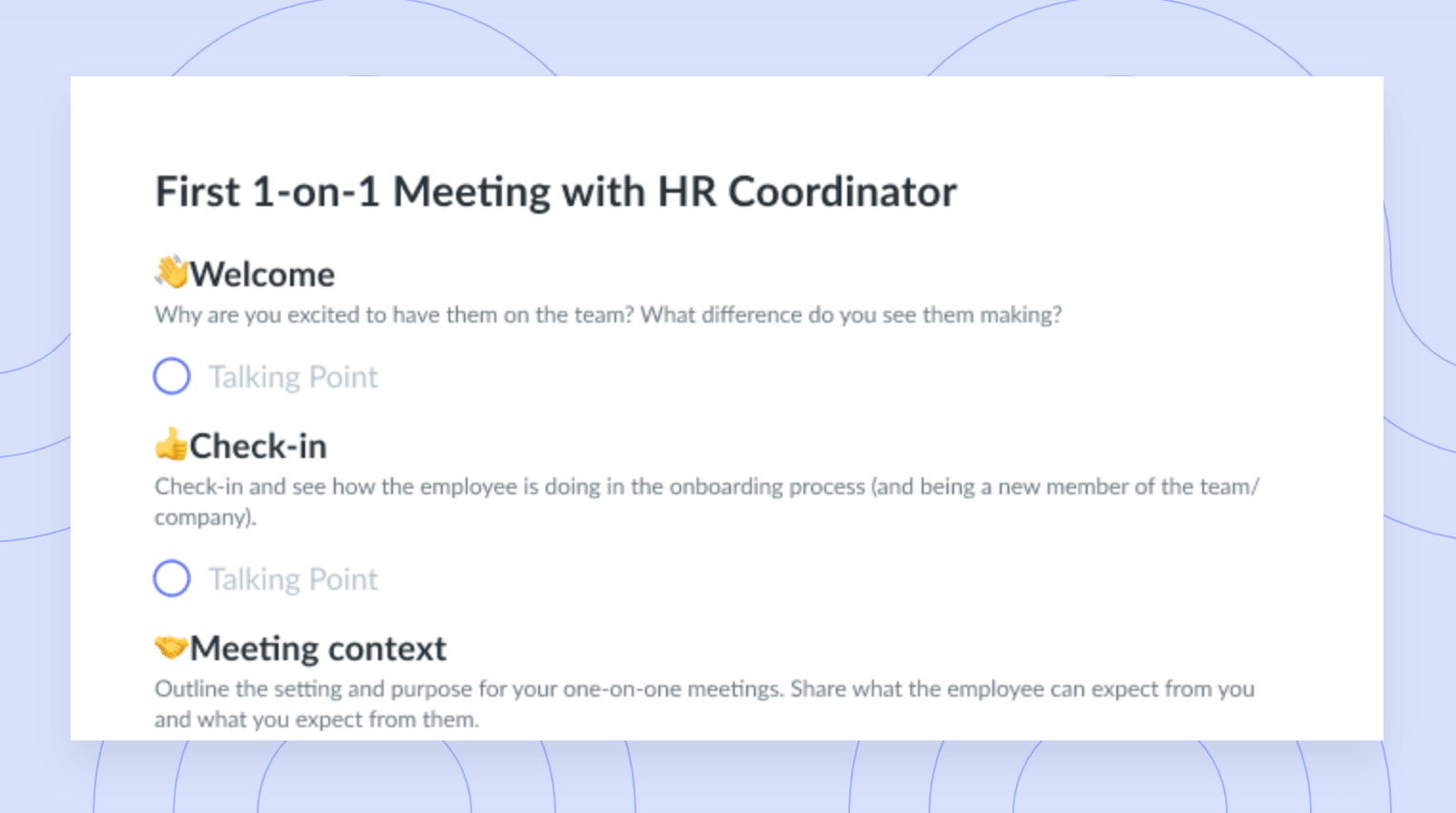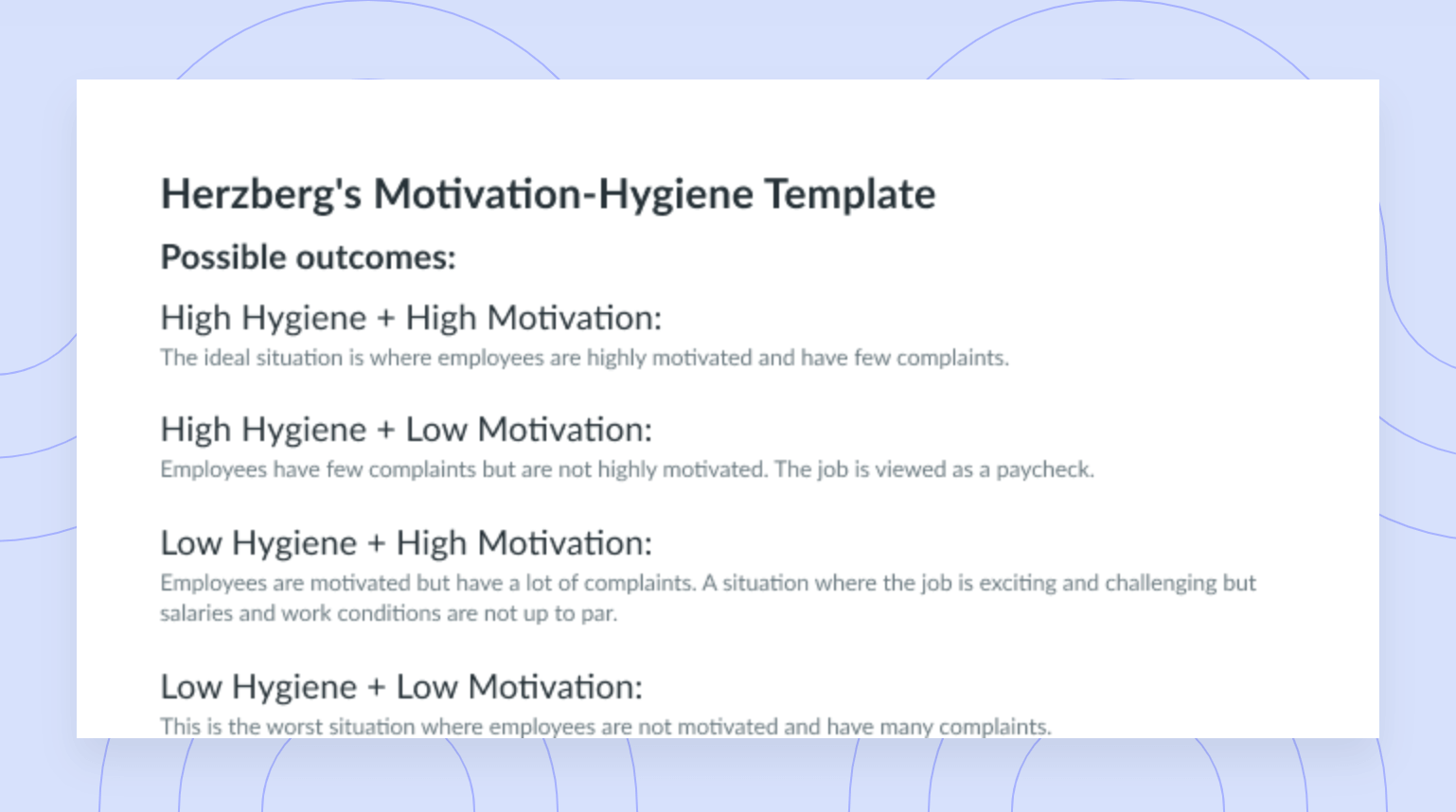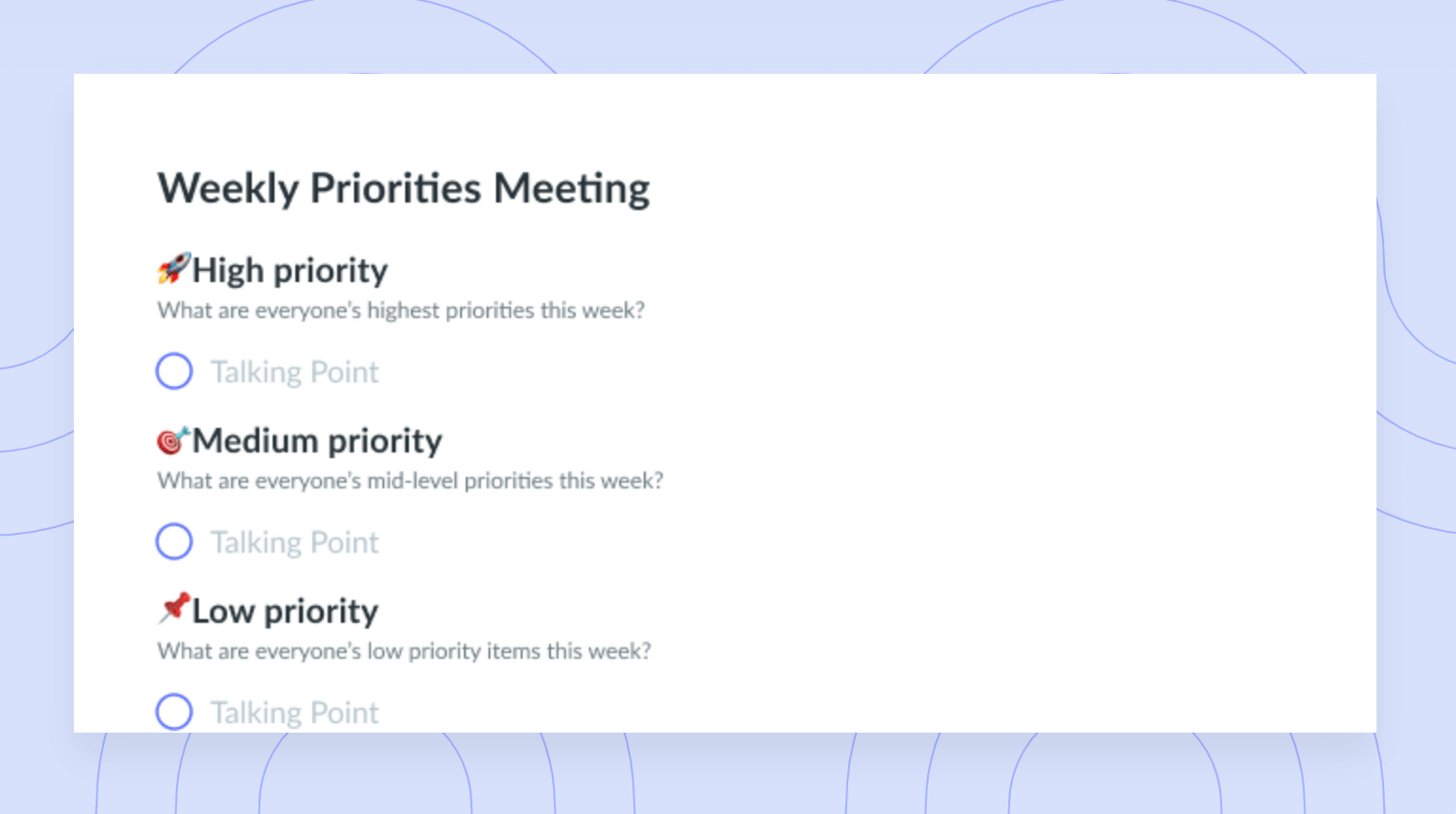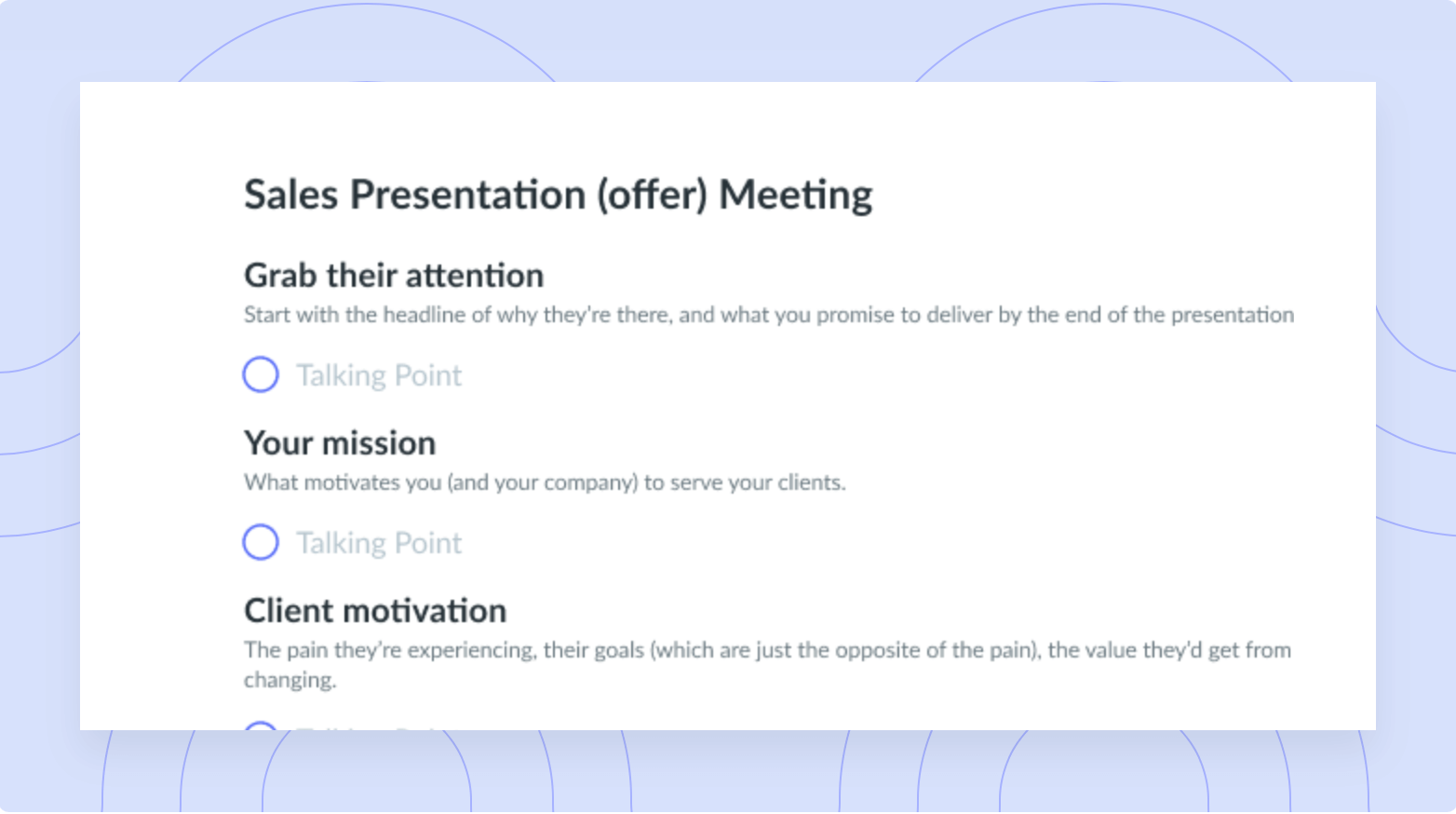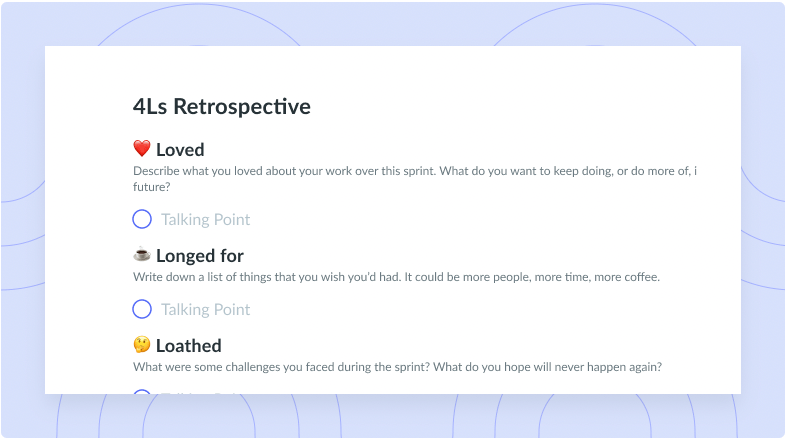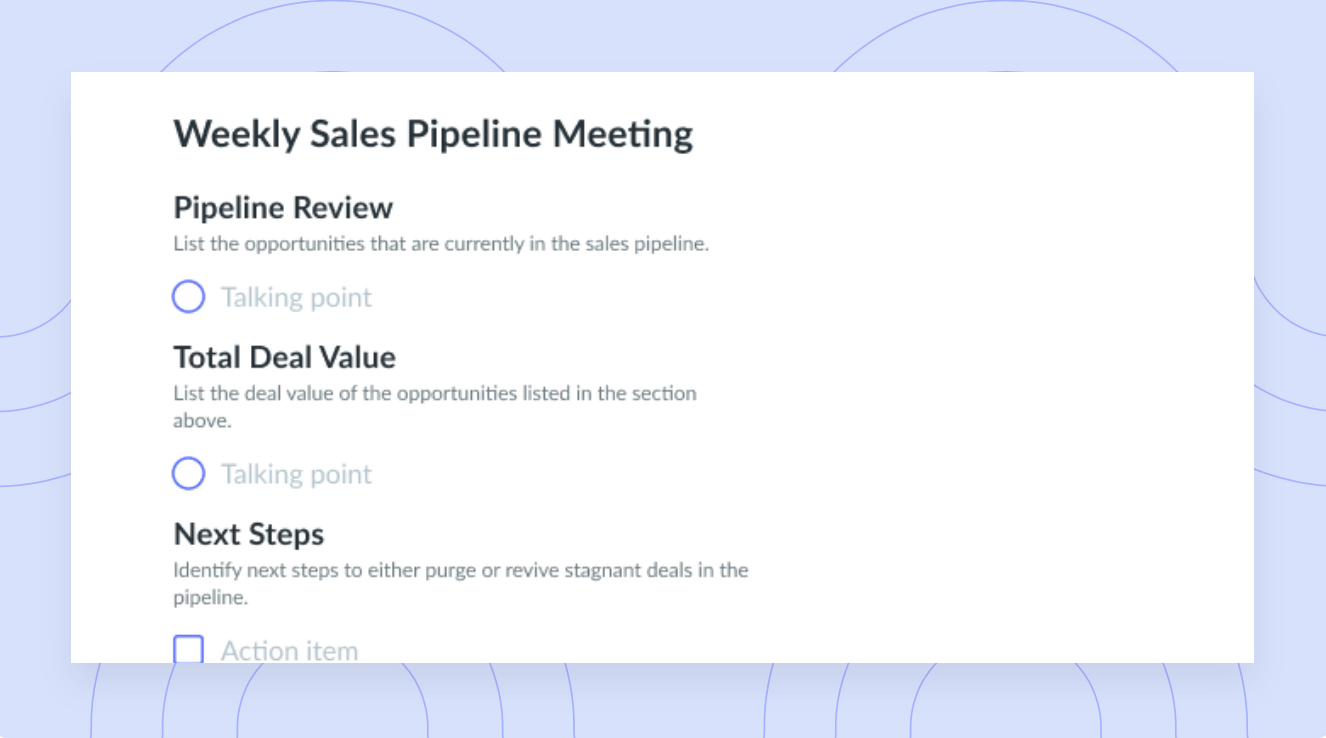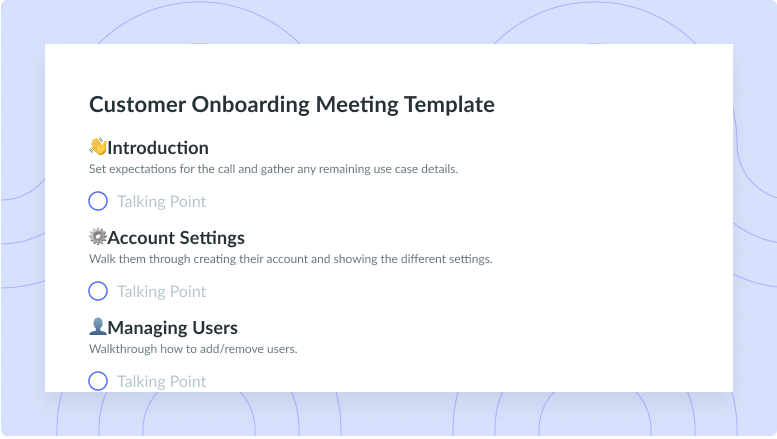10 Ways to Fix Low Motivation At Work (+Possible Causes)
You might lose your motivation every now and again at work. Below are a few ways to get it back before it starts really affecting you.
If you’re dealing with low motivation at work, you’re certainly not alone. And if we’re being honest, staying at the same energy level you may have had as a bright-eyed rookie can be tough in the long run. That’s not to say you can’t find joy at work down the line! It’s just that doing so might get harder as you get used to your day-to-day.
The thing is, a lack of motivation at work can cause a serious dip in your productivity. Below are a few ways you can reignite your drive in the workplace.
10 ways to fix low motivation at work
Fixing low workplace motivation starts with re-examining how you interact with your job – and then shaking things up. The tips below can give you new ways of looking at your usual tasks and help reignite your interest in them.
- Create goals, not chores
- Manage your time well
- Sustain progress
- Find effective rewards
- Harness other people’s influence
- Take more breaks throughout the day
- Build momentum
- Talk with your coworkers
- Make more plans outside of work
- Take a mental health day
1Create goals, not chores
There aren’t a lot of people who like doing chores. Those people probably exist, but they’re likely outnumbered by those who dislike even hearing the word “chores” – chores are busy work. Worse, they’re tasks that you might feel need to be done, not that you want to do. That alone can make actually doing them unpleasant, and if you’re feeling unmotivated, maybe you feel the same about your work tasks.
If you only think about your work as something you need, not want, to do, you’ll slowly start wanting to do, well… just about anything else. Goal setting can help get you out of this headspace. Instead of worrying about all the work you have yet to do each day, set a concrete goal for how much you plan on doing. Achieving that goal can make you feel accomplished, and that can be a more effective motivator than just a paycheck.

Track objectives as part of your meeting workflow
Stay on top of your team’s goals by clearly recording, defining, and tracking the progress of your OKRs in Fellow’s Objectives tool. The best part? You can quickly review those objectives during your team meetings!
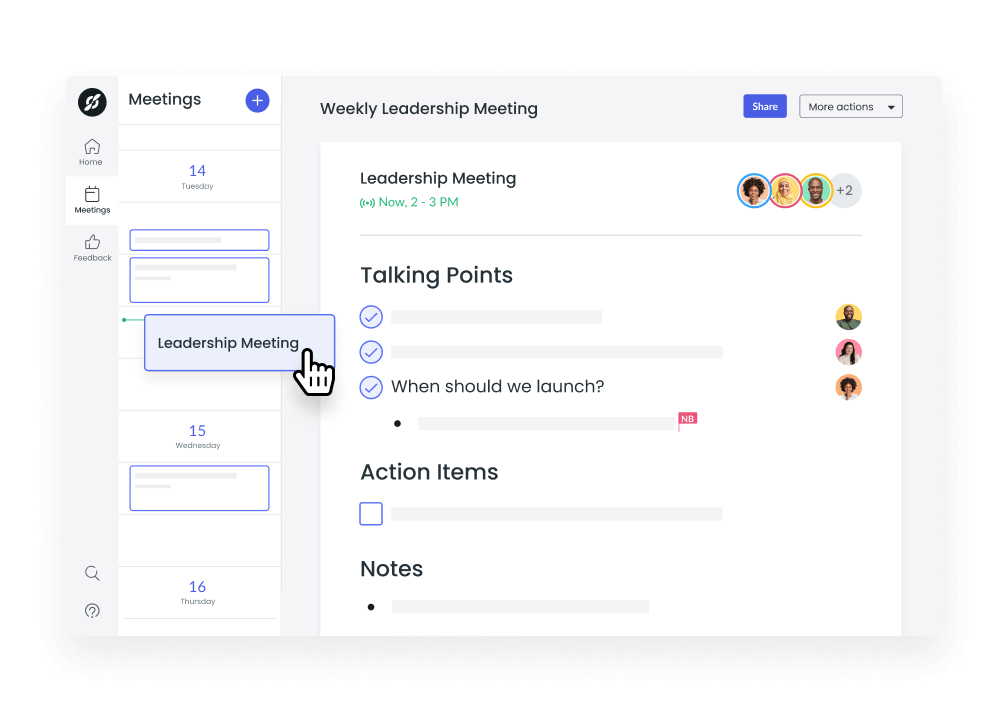
2Manage your time well
Knowing how to use your limited time well is one of the best skills you can learn. After all, there are going to be a lot of things that call your attention away from your actual tasks. Letting those things pile up without any prior planning can end up overwhelming you with a mile-long to-do list. And you might not have much motivation to start heading down a path that seemingly has no end.
That changes with proper time management. For example, you can block off part of your workday for finishing your tasks and another for plowing through your inbox. Dividing and conquering can make your day seem way more reasonable – it’s a great antidote to low motivation.
3Sustain progress
We’ve all dealt with those mid-work slumps where your progress starts to hit speed bumps, even if you started out running on all cylinders. Staying motivated can be hard when you’ve already put in so much work, but you still feel miles away from the finish line. The best way to beat that slump is to change how you think about progress altogether. Don’t just focus on all the work that’s left – think about what you’ve accomplished as well. Knowing that you’re already making progress can boost productivity and motivate you to reach the end.
4Find effective rewards
For many employees, external motivators such as earning a paycheck can provide enough motivation, but that can get less effective over time. If you’re in the same boat, try putting a bigger reward at the finish line. Maybe you buy yourself a present after finishing a large project or go on that vacation that you’ve been putting off.
That said, your reward shouldn’t undermine your results. For example, if you’re trying to be more productive at work, the reward for pulling it off probably shouldn’t be a lazy day.
5Harness other people’s influence
If you’re struggling to stay motivated in the workplace, getting advice from someone on your team who’s thriving might be just what you need. This isn’t off-limits in work-from-home positions – it’s not like you’re working in a vacuum. Leaning on your team or some other sort of support network can inspire some new and exciting ways to tackle your daily tasks.
You’re probably best off asking for advice rather than just watching your teammates. Sometimes, that can help, but sometimes, seeing someone fly through tasks you’re struggling with can discourage you more.
6Take more breaks throughout the day
Nothing can kill motivation like monotony, so you should give yourself a change of scenery every now and again. When your breaks come around, don’t spend them at your desk if you can help it. Instead, take the chance to go for a walk and clear the cobwebs out of your head. You’ll often return to your tasks mentally refreshed and more prepared to tackle tough problems.
7Build momentum
You don’t have to hit the ground running when you start your workday. That type of energy might be difficult to come by if you’re working a typical nine-to-five. Instead, try increasing your emphasis on priority management. Finish a small bit of a larger task to get the wheels turning, then build off that until your brain gets up to full speed.
Starting small can mean more than completing a small task. It can mean any low-effort activity that helps focus your attention. That could include drinking a cup of coffee, going for a light jog, eating a nutritious breakfast, or even meditating.
8Talk with your coworkers
Simply chatting with your teammates can be its own motivation. We’re social creatures by nature, so when you work in isolation, you can really feel down. That, of course, can make it more difficult to feel emotionally connected to your work. Building connections in your work life can help you feel more engaged with your company’s mission.
9Make more plans outside of work
Who doesn’t like settling down on a comfy couch after a long day of being productive? A relaxing night as a couch potato is usually well-earned after a day of hard work. But if you’re already struggling with workplace motivation, relaxing too much in your off-hours can make going back to work an uphill climb.
Instead, try fitting in more active recreational activities in your personal life, like working on your hobbies or setting up a board game night. This way, you can still decompress after work, but your brain stays active. And that means you might not have to fight so hard to go back the next day.
10Take a mental health day
If all else fails, don’t be afraid to take some time off to focus on your mental health. Even if you like your job, dealing with work stress for long enough can leave you emotionally exhausted and affect your work quality. Taking a day or two for yourself is a good way to recharge your batteries. You might find it easier to get back in the swing of things once you return to your desk.
What causes low motivation at work?
Knowing how to fix your low motivation is all well and good, but it’s just the start. You could lose your motivation all over again if you don’t know why you weren’t feeling motivated in the first place. Learning to figure out why you were feeling emotionally disconnected from work is often the first real step to fixing it for good. Below, learn what can cause low motivation at work, and how you can ultimately avoid low production as a result.
- Your career feels stagnant
- You have too many distractions
- You feel unchallenged
- You don’t get enough sleep
- You’re emotionally exhausted
- You aren’t getting recognition
- Your work environment is toxic
- You’re a perfectionist
- Team spirit is lacking
1Your career feels stagnant
Some roles or teams don’t offer much room for growth, professional or otherwise. With no way forward, you might find yourself doing the same things day after day. That can get boring and repetitive quickly, and it would never happen if you had the chance to grow in your career.
2You have too many distractions
At work, there are often a lot of things fighting for your attention. Between emails, meetings, and any personal problems running through your mind, it can be hard to focus on your actual tasks. Or maybe your workplace itself is distracting you from doing your job and you’re a true work-from-home type. That can make it tough to feel motivated. Hybrid work might be a great solution here.
Fellow’s Chrome extension helps eliminate distractions by bringing your meeting notes and agendas into Google Meet and Google Calendar. With this extension, you can access your meeting notes right inside of Google Meet calls and your Google Calendar to supercharge team meetings and 1-on-1 without leaving the tools that you are already using. Say goodbye to multiple, distracting tabs! 👋

3You feel unchallenged
A job with easy work might seem like a dream to some people, but that’s before they have to deal with it long-term. Challenging tasks are obviously tougher, but doing them well can motivate you to keep plugging away at them. If every task is a breeze, they might start to feel mindless, with nothing left to teach you. A few hurdles you can figure out how to jump over can bring your motivation back.
4You don’t get enough sleep
Getting a good night’s rest is one of the best things you can do to maintain your physical and mental health. Sure, caffeine can help get you through the day, but that’s putting a band-aid on a larger problem – eventually, a lack of shut-eye will catch up to you. Every hour of sleep you miss drains a bit more from your physical and mental well-being. And when you’re not feeling well, it’s hard to pump yourself up to do great work.
5You’re emotionally exhausted
Too much time spent dealing with work pressures – and too few breaks – can take a toll over time. Even if you like your organization, stress can pile up and chip away at everything you enjoy. If all you can see is the bad, you’re facing emotional exhaustion. This can cause you to lose touch with your organization’s mission and vision statements and feel negatively about your coworkers. Some time away can help.
6You aren’t getting recognition
Is a paycheck enough recognition for a job well done? For a lot of people (maybe including you), the answer is no. While money is nice, it’s a necessity and comes as part of the deal with jobs. It’s a reward, sure, but it’s more like a participation trophy. Real team member recognition acknowledges that you make valuable contributions to the company. Real recognition celebrates your efforts to go above and beyond. Without it, you might not want to do more than the bare minimum because it feels like doing more won’t matter.
With Fellow’s collaborative meeting agendas, you can easily give regular recognition to team members. Plus, if you choose a recurring template with a “wins” heading, you will be reminded at each meeting to shout out your team members!
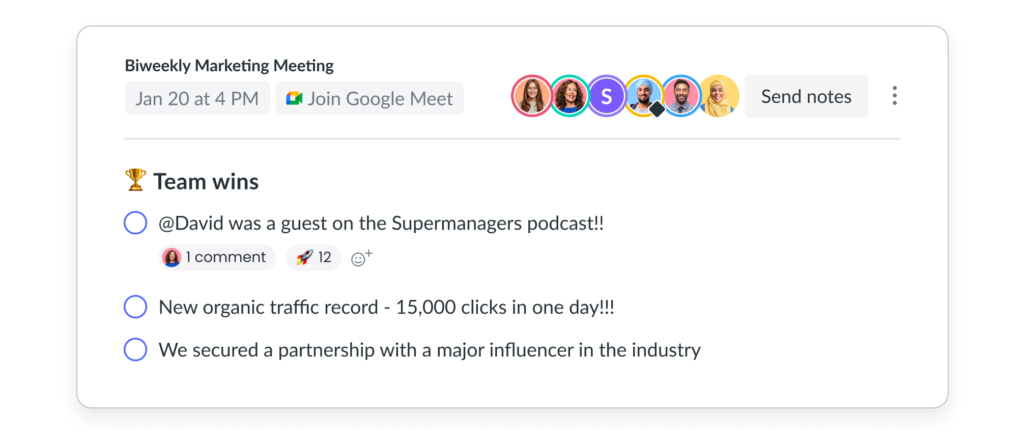
7Your work environment is toxic
Bullying, cliques, manipulation, and backstabbing – did you just get tense? These are all hallmarks of a toxic work environment you should try to leave. Most jobs, even the great ones, are stressful enough by themselves – add on toxic coworkers or bosses, and it can feel like working in an active minefield. The best way to get your motivation back might be to find a new job.
8You’re a perfectionist
There’s nothing wrong with wanting to turn in your best work until you start missing deadlines because it has to be just perfect. In reality, perfection doesn’t actually exist. There will always be flaws, and trying to make your work flawless will usually just make you feel overwhelmed instead. Holding all your work to near-impossible standards can quickly sap your motivation to do any of it.
9Team spirit is lacking
Having teammates to rely on when you’re struggling can go a long way toward helping you stay motivated at work. Admittedly, some companies believe that a competitive culture can produce higher-quality results from their team members. While they might not be entirely wrong, it’s stressful returning every day to a cutthroat work environment.
Rather than work on a team where everyone would rather tear you down, go for effective teamwork instead. Making other people happy can be a huge motivator.
Overcome low workplace motivation
A drop in motivation is totally a problem you can solve with some help from others. That might mean meeting with your manager to find a solution. Fellow is a professional meeting software that can help you turn your low motivation around. You can use its OKR (objectives and key results) features to set meaningful goals that inspire you. You can also chat with your team members about your goals through the real-time feedback tool. This way, you’ll never struggle alone.









